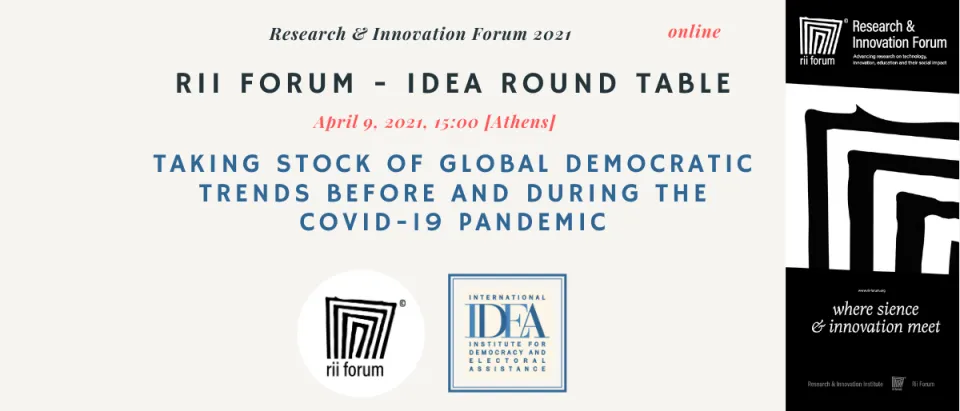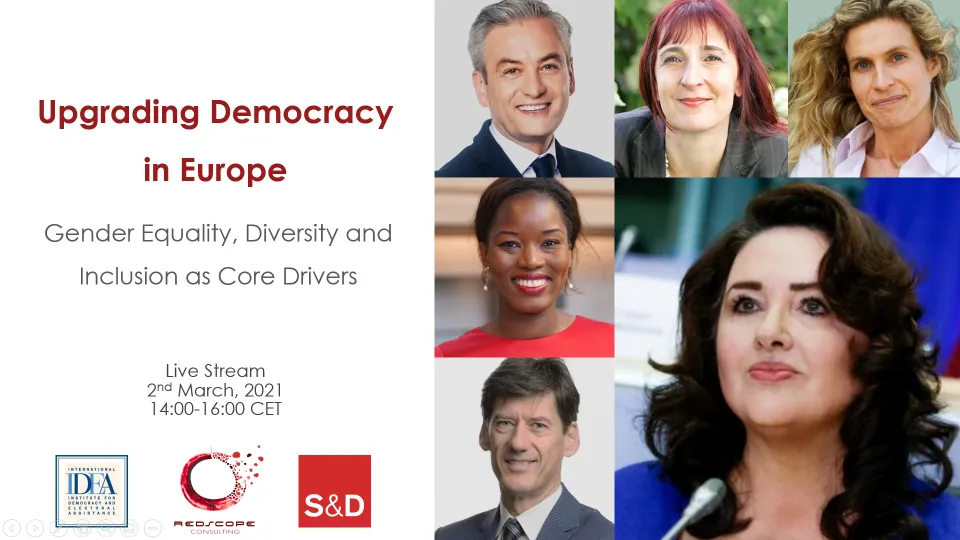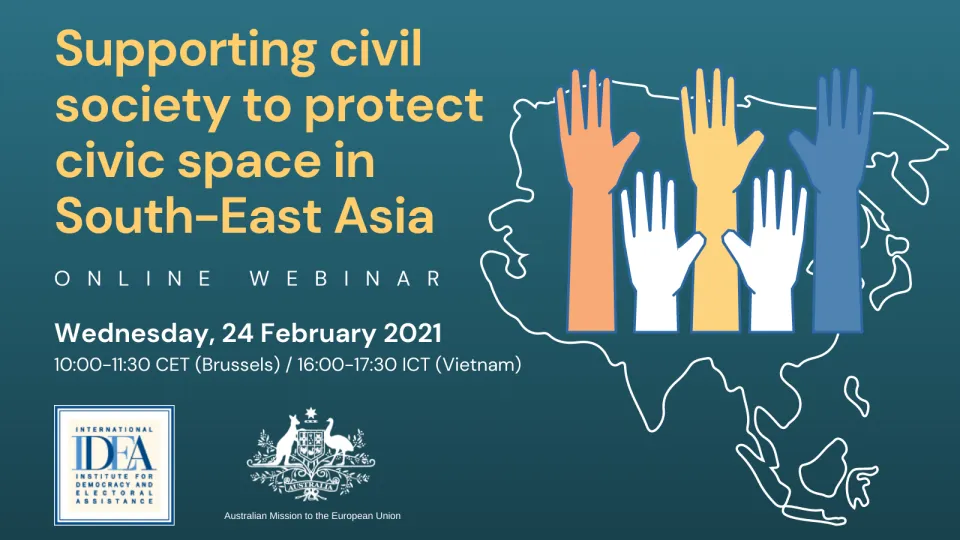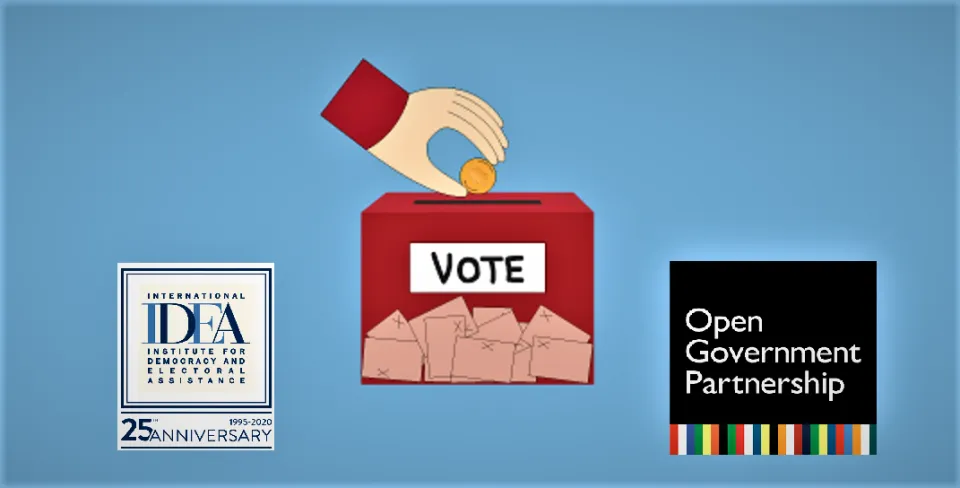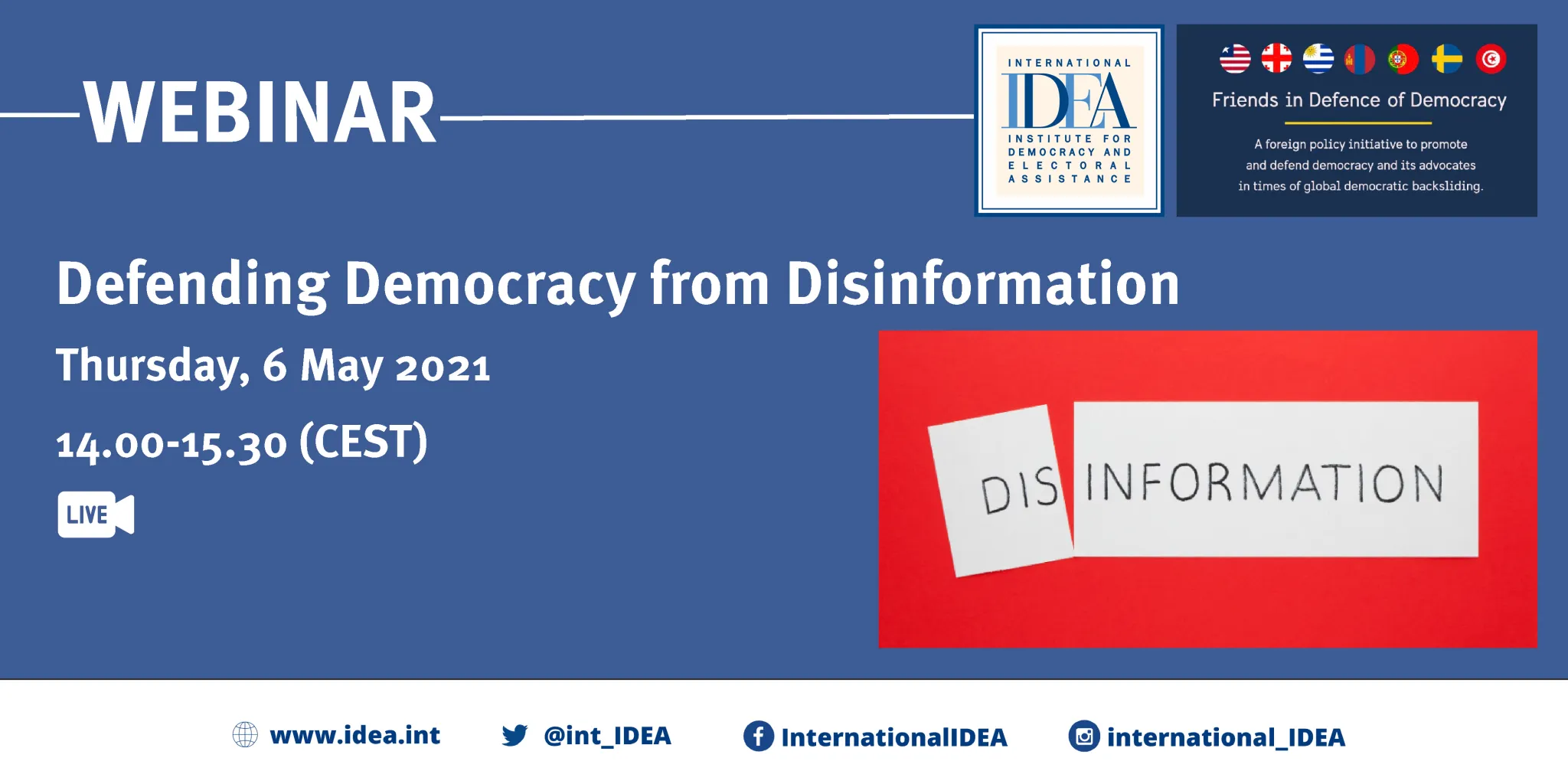
The proliferation of disinformation and ease with which malign forces can manipulate information is greatly undermining democratic institutions. Political disinformation creates chaos, division, and distrust. It has resulted in parallel universes in which individuals operate with a different set of facts and live in different realities.
Register here.
Disputes over conflicting opinions about how to solve society’s problems have been replaced by a divergent understanding of what the problems are in the first place.
Disinformation hurts democracy in a multitude of ways.
- First, it harms electoral processes by endangering the concept of “informed choice”, as voters go to the polls with incorrect information mixed in with conspiracies. It may also damage electoral legitimacy, by spreading lies about the electoral result and its fairness.
- Second, and perhaps more fundamental, disinformation polarizes societies and distorts public debates. Executive actions, legislation, appointments, and foreign policy are all viewed through vastly different lenses, with no clear referee of facts and evidence, making the truth subjective, legitimacy questionable and accountability impossible.
- Third, disinformation also presents an effective vehicle for both domestic and foreign anti-democratic actors to peddle harmful narratives, further exacerbate pre-existing societal divisions, and push individuals toward undemocratic alternatives, such as authoritarian populist movements, autocratic strongmen, or even extremist organizations.
- Fourth, disinformation may also be a national security threat, effectively undermining states’ foreign policy goals and partnerships as well as promoting hostile adversaries.
Disinformation has become a critical and pressing challenge for democracies around the world.
International IDEA and the Friends in Defence of Democracy will hold a webinar entitled: "Defending Democracy from Disinformation", on Thursday 6 May 2021, at 14:00 – 15:30 (CEST). This webinar will explore tangible solutions and best practices to protect democracy from disinformation, protect information integrity and ensure access to information and build societal resilience disinformation.
Programme |
|
14.00 – 14.05 |
Welcome remarksAnn Linde, Minister for Foreign Affairs, Sweden |
14.05 – 14.15 |
Presentation: Building societal resilience against disinformation - which measures are most effective?Dr Marco Aurelio Ruediger, Director of Public Policy Analysis at the Getulio Vargas Foundation, Rio de Janeiro |
14.15 – 14.25 |
Presentation: Government responses for tackling disinformation - which policies should be consideredCarlotta Alfonsi, Open Government Specialist at the Organisation for Economic Co-operation and Development (OECD) |
14.25 – 14.55 |
Comments and reflectionsMinisters/Deputy ministers from Friends in Defence of Democracy Member States: Georgia, Liberia, Mongolia, Portugal, Sweden, Tunisia, Uruguay |
14.55 – 15.25 |
Panel discussion with country representatives & expertsModerator: Dr Kevin Casas-Zamora, Secretary-General, International IDEA |
15.25 – 15.30 |
Closing remarksAnn Linde, Minister for Foreign Affairs, SwedenDr Kevin Casas-Zamora, Secretary-General, International IDEA |
About The Friends in Defence of Democracy
The Friends in Defence of Democracy is a partnership between Georgia, Liberia, Mongolia, Portugal, Sweden, Tunisia and Uruguay founded upon a common concern for the challenges facing democracy, human rights and the rule of law around the world. The Friends in Defence of Democracy will collaborate with a view to manifesting their commitment to democracy and to stepping up their efforts to protect democracy, its principles, processes, institutions and defenders.
